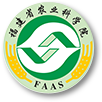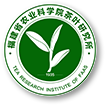Abstract:
Tea culture tourism combines agricultural activity,consumer education, and healthful entertainment into an ecological friendlybusiness operation. Customer satisfaction of the visitors to the site is acrucial indicator to gage the success of an operation and to guide for furtherdevelopment. This article explores the various factors that affect the tourismthrough a case study on Wushan Tea Village in Xianyan aiming for improvementsof the industry. From the results of 452 valid questionnaires, scientific andstatistic methods including the exploratory factor analysis, paired sampleT-test, and IPA analysis were employed to arrive at the following findings. (A)Tourist satisfaction could be analyzed based upon 5 dimensions and 22 specificindices that encompassed service quality, resources and environment,transportation, auxiliary facilities, and specialty merchandise. (B) Visitor’spersonal expectations, focal point and satisfaction could be significantlydiverse. Overall satisfaction of the tourists visited the theme park of thiscase study, however, was mediocre. And, (C) The services accessibility,professional assistance, park management, on-site traffic, parking conditions,environmental design, shopping atmosphere, quality of tea served, and theme of teaculture were areas with potential promotional advantages for the Village. Whilethe hospitality displayed by staff, convenient amenities, well-designedpedestrian paths, acclaim public image, excellent air quality, attractive scenery,charming landscape, handy phone and WiFi connectivity, clean and amplelavatories, and provision of a customer service center, entertaining programsand gift shop could much enhance the visitors’ satisfaction. Accordingly, meansto improve the operation at Wusahn Tea Village are discussed. Through promotingtea culture with tantalizing exhibitions of its characteristics and deep content,developing ergonomic infrastructure with hygienic and natural designs, andestablishing state-of-the-art sanitary disposal, recycling and treatment systemfor the wastes and effluent, the tea culture theme park could simultaneouslyembrace agricultural, economical, educational as well as ecological benefits.




 下载:
下载: